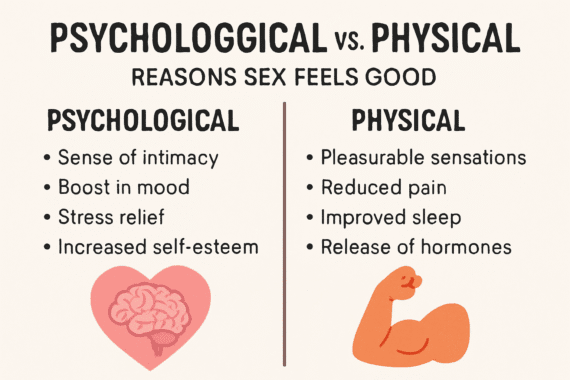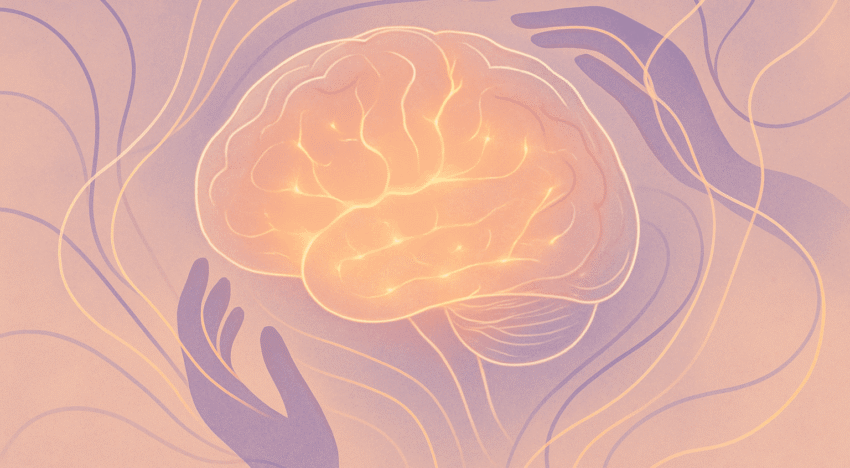Last Updated on 16/06/2025 by Jai
You don’t need science to know sex feels good. But your body knows more than your brain lets on.
From dopamine highs to the electric magic of touch, pleasure isn’t just physical — it’s deeply neurological, psychological, and emotional. In 2025, we finally have the research to understand what’s really going on.
Let’s break it down.
What Happens in the Brain During Sex
When sex starts, your brain goes into overdrive — but not how you think.
- Dopamine floods your reward centers, triggering waves of pleasure and craving.
- The amygdala, tied to fear and stress, quiets down — making you feel safe and relaxed.
- Your prefrontal cortex, responsible for decision-making and judgment, temporarily powers down. You stop overthinking and become fully present.

Then comes oxytocin (the “bonding hormone”) and endorphins (your natural painkillers), which not only intensify pleasure but also deepen emotional connection.
Your brain isn’t just reacting. It’s choreographing a full-body experience that rewards connection, vulnerability, and touch.
The Neuroscience Behind Sexual Pleasure
Touch is where it all starts. But not all touch is equal.
- Erogenous zones are rich in nerve endings and sensory receptors. They activate faster and stronger than other skin areas.
- These signals travel from your skin to your spinal cord and into the brainstem, triggering areas like the nucleus accumbens and hypothalamus — both crucial for reward and arousal.
- Even the anticipation of sex can activate pleasure circuits more intensely than climax itself.
Sex is also a multimodal experience — a blend of touch, scent, rhythm, and emotion. That’s why it’s so hard to simulate artificially.
Read more: GPT for Mental Health: Ethics + Apps — AI can talk, but it can’t feel.
Why Touch and Intimacy Increase Pleasure
Touch isn’t just sensory — it’s emotional. Here’s why:
- Skin-on-skin contact increases oxytocin, which enhances trust and closeness.
- Eye contact, laughter, synchronized breathing — these amplify parasympathetic activation, helping the body enter a relaxed and receptive state.
- Intimacy also lowers cortisol (stress hormone), allowing the body to focus fully on pleasure.
This is why sex in safe, trusting relationships often feels better. The nervous system isn’t just reacting — it’s cooperating.
Related: Mental Wellness in 2025 — Your emotional state shapes your sensory experience.
Psychological vs. Physical Reasons Sex Feels Good

Sex is often framed as a physical act — but much of the pleasure is psychological:
Psychological reasons:
- Feeling desired and connected
- Emotional intimacy and trust
- Escapism, playfulness, vulnerability
Physical reasons:
- Nerve stimulation in high-density regions
- Hormonal cascades (dopamine, oxytocin, serotonin)
- Rhythmic motion creating brain-body harmony
When both line up? That’s where truly fulfilling sex lives.
When one is missing? Even perfect technique won’t compensate for emotional disconnection.
Quality of connection often matters more than intensity of stimulation.
Final Thought: Pleasure Is a System, Not Just a Sensation
Sex is a multi-layered feedback loop: biology, psychology, and emotional safety all working together.
In a world full of hacks, tips, and noise, the truth is simple:
Good sex starts in the brain, flows through the body, and is amplified by connection.
You can’t download real intimacy. But you can learn how to nurture it.

Digital trends curator and cinema obsessive. If it’s trending, weird, or wildly entertaining, and i am watching it and blogging it.
